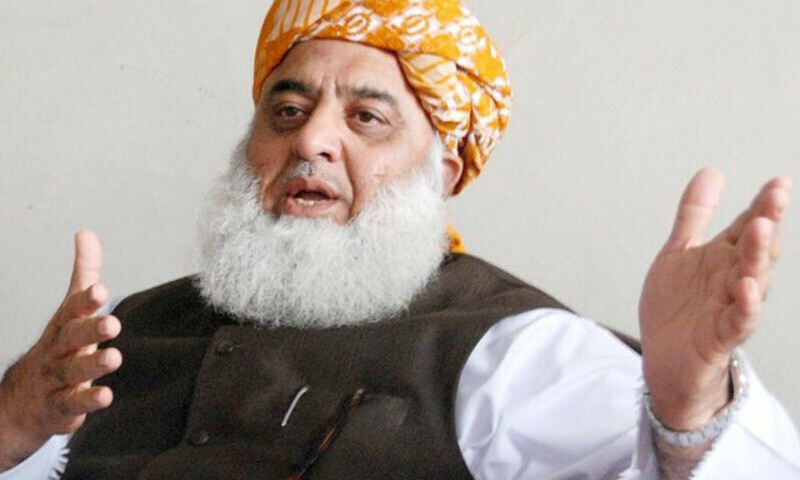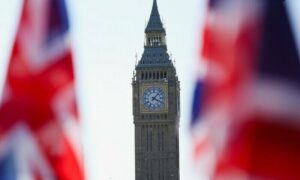ISLAMABAD: As the fate of the Societies Registration (Amendment) Act 2024 remains shrouded in mystery, a meeting between JUI-F chief Maulana Fazlur Rehman and NA Speaker Ayaz Sadiq on Tuesday failed to break the deadlock, with the former once again accusing the government of ‘deception’.
The proposed legislation, commonly known as the madressah registration bill, was sent back by President Asif Ali Zardari with objections, even though it was passed by parliament at the time of the passage of the 26th Amendment.
The bill had some ‘typos’ which was the reason it was returned by the president, but it was sent back to the presidency the next day after the errors were fixed, the JUI-F sources quoted the speaker as saying.
However, the NA officials feigned ignorance when Dawn approached them about the objections and even suggested that it might have been forwarded to the parliamentary affairs ministry by the presidency.
Fazl accuses govt of deception as deadlock persists
JUI-F Senator Kamran Murtaza, however, claimed there were no objections to this bill by the president.
“There is no objection by the president over the bill and now they are trying to backdate it after we took up the matter with Bilawal Bhutto-Zardari on Dec 4,” the JUI-F senator said. “Article 75 states that if any bill remains with the Presidency for more than 10 days, it will eventually be ‘deemed to have assented’.”
The bill sailed through the Senate on Oct 20 and the NA the following day. The government supported it in return for the JUI-F support on the 26th Amendment. The Societies Registration Act 1860 has defined the term society in Section 20 of the Act: “…charitable societies, societies established for the promotion of science, literature, or the fine arts, for instruction, the diffusion of useful knowledge, the diffusion of political education…and other works of art, collections of natural history, mechanical and philosophical inventions, instruments, or designs.”
‘Missing bill’
The Societies Registration (Amendment) Act 2024 is an extension of the Societies Registration Act 2005 with some minor amendments to Section 21 that pertains to ‘Registration of Deeni Madaris’.
The religious institutions had been established under the Societies Registration Act 1860 and after partition, most of the religious seminaries were established under this act.
In 2005, military dictator Pervez Musharraf made registration of seminaries mandatory by adding Section 21 to the act. Section 21 had four clauses that pertained to registration of seminaries, annual reports of education activities, and yearly audits. “One Deeni Madressah, having more than one campus, shall need only one registration,” it said. The section also stated no seminary should promote militancy, spread sectarianism or hate speech.
“It was the first time a law was enacted for the compulsory registration of seminaries and the unregistered seminaries got themselves registered at the relevant deputy commissioner’s office,” said Qari Hanif Jalandhari, chief of Wafaqul Madaris Al-Arabia, the board of seminaries belonging to the Deobandi school of thought, also the largest seminary board.
The 2024 amendment adds three more clauses to this section. According to the proposed law, seminaries shall, subject to their resources, include basic contemporary subjects in their curriculum according to a phased programme.
The other two clauses highlight the seminaries will have to get registered under this act only and that any additional registration is not needed.
According to Qari Hanif, the clauses in the 2024 bill promote the learning of knowledge and skills among the seminaries’ students.
“Besides, the seminaries under the current arrangement are required to get registered with many other departments under other laws like charity laws etc, because if the registration process is not simple, people prefer not to get registered and operate outside the ambit of law,” Qari Jalandhari added.
Due to public pressure after the APS in 2014, discussions ensued about placing seminaries under the control of the interior ministry.
After around three years of negotiations, on the recommendation of the seminaries, the madressahs were placed under the education ministry through an order in 2019. However, the Societies Registration Act 2005 also remained in the field.
This decision was welcomed by the joint body of religious seminaries that included five seminaries boards belonging to mainstream sects — Barelvi, Shia, Deobandi and Ahle Hadith, while the fifth board belonged to the seminaries affiliated with the Jamaat-i-Islami.
This administrative order also established the Directorate General of Religious Education under the federal education ministry. The JUI-F, at the time, did not agree with this arrangement and the current push to repeal this order through the passage of the amendment law is spearheaded by the Fazl-led party.
Another problem with this order was the challenge to the monopoly of traditional boards. “…there was another clause in the DGRE and that was the option to get new boards registered,” said Amir Rana, director of the Pakistan Institute of Peace Studies, a think-tank.
“Soon the five traditional boards realised that their monopoly…was eroding and hitherto around 10 new boards have been established among all four mainstream sects, and some of them are even imparting high standard skill training along with religious education,” Mr Rana added.
Against this backdrop, there is a tussle going on between the old guard and newcomers. While Fazl is leading the old camp to bring all seminaries under the Societies Act 2024, the fresh entrants are led by Hafiz Tahir Ashrafi, who has limited political standing but enjoys support among the powers that be.
Published in Dawn, December 11th, 2024







